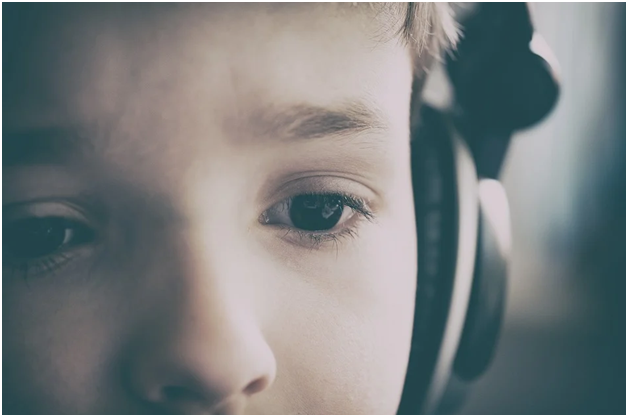How Auditory Processing Disorder Tested?
Posted by Attune Hearing on January 2nd, 2021
If you have been advised to take your child to an audiologist to be tested for auditory processing disorder, you might be wondering what’s involved in the test. You might also like to prepare your child for the tests by explaining what to expect. The following is a guide for families with children who are booked to have tests for auditory processing disorder.
What is auditory processing disorder?
Children with auditory processing disorder have symptoms that include:
- trouble reading and writing,
- an inability to hear or process sound in background noise,
- inattentiveness, poor ability to concentrate and
- poor academic ability.
These symptoms are often present without a hearing loss.
There are a number of terms used to describe auditory processing disorder. These include, but are not limited to, "auditory processing disorder", "central auditory processing disorder (CAPD)", "language processing disorder", and "auditory information processing disorder" . This guide will use the term CAPD.

How are children tested for CAPD?
Early diagnosis (from 7 years on) for children is important because some forms of therapy become ineffective after adulthood. An example of this is the “LiSN and learn” program to remediate spatial awareness disorder. A thorough diagnostic CAPD assessment can be performed on children over 7 years of age and adults who have auditory processing difficulties. It is not possible to test younger children because the normal variability in brain function across younger children is so notable that interpretation of test results is not accurate.
CAPD testing
Children will always have a hearing test to rule out any medical causes or temporary hearing loss developments, such as middle ear problems. These assessments are completed by an audiologist. An audiologist is a university-trained health professional with specialist skills and knowledge in ears and hearing. CAPD testing takes 3 hours and some children prefer to have the testing done over two appointments. The process is as follows:
- Initially, the audiologist will take a case history. There will be questions regarding your child's learning and hearing skills. It is a good idea to bring any reports from a Speech Pathologist, educational psychologist, behavioural optometrist or school reports along to the appointment. This will provide the audiologist with information which assists in the diagnoses of your child.
- Next, the ear canal and ear drum are examined through an otoscope. The otoscope is a very small torch with a magnifying glass. Children are simply required to sit still while the audiologist looks for wax and checks the state of the ear canal and the ear drum.
- The health of the middle ear is assessed using tympanometry. The audiologist will place a small soft tip on the outer edge of the ear canal and a low pitched tone is presented. This test will assess the mobility of the eardrum and the three small bones in the middle ear. This procedure is painless.
- The audiologist will then test the ear's physiological response to sound (acoustic reflex testing) when possible. Using the same equipment as tympanometry, Children will hear a series of beeps and the audiologist will look for a muscle reflex.
- Next, the audiologist will do a hearing test or Pure Tone Audiometry. This generally consists of air conduction, where either headphones or soft foam inserts are used to play a series of tones at different pitches. Children are required to respond to the tones and the quietest pitches heard are recorded by the audiologist on a hearing graph (audiogram). Often children will also be tested by bone conduction, which allows the Audiologist to distinguish between a middle ear and inner ear problems (conductive hearing loss or sensorineural hearing loss). Here, the audiologist places a bone vibrator on the skull or mastoid bone (just behind the ear) which also records the child’s responses to the quietest tones presented on the audiogram.
- If a medical issue is detected by the audiologist, you will be advised to see your GP/ENT and a report will be written.
- The Audiologist will then proceed onto Auditory Processing and Memory Testing. Tests for children may vary depending on the individual difficulties. The tests include:
- The LiSN-S (listening in spatialised noise) test which assesses the child’s ability to hear in a noisy environment.
- Auditory working memory tests, where the child’s ability to recall numbers and sentence material is tested.
- Dicotic Digits test, which assesses the child’s ability to listen to information presented simultaneously to both ears.
- Random Gap Detection Test. This assesses the child's ability to detect two tones presented at different time intervals.
- Frequency Pitch Pattern Test. This assesses the child's ability to detect subtle differences in sound.
- Continuous performance test, where the audiologist will test the child’s visual and auditory attention. Children are asked to click the mouse whenever the number 1 is seen or heard.
- Non verbal IQ tests, where children are compared to age specific tables to give a scaled IQ score.
- At the end of the assessment, the audiologist will be able to explain the test results, discuss recommendations and answer any questions.
- The audiologist will also supply a formal written report (at a later date) and include any recommendations for further investigations and management or intervention as appropriate. The audiologist will be available to call should you have any questions about the report.
The nature and degree of the hearing disorder are determined during the assessment process. This allows the audiologist to recommend a management and treatment plan to address the specific needs of children individually.
If your child or a family member is experiencing hearing loss, book an appointment with an Attune audiologist today. Call on 1300 736 702 or enquire online to experience the benefits that early intervention can provide in helping with all types of hearing loss.



